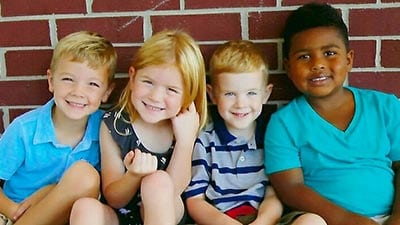Pre-Kindergarten Classes
Early Childhood Education For Ages 4 to 5
Early Childhood Education For Ages 4 to 5
Pre-Kindergarten classes at Kiddi Kollege provide a nurturing, serene, yet flexible atmosphere that encourages students’ social development. We also implement routines through a daily schedule that allows each student to succeed in all the major subjects. Our students enter Kindergarten with the confidence to excel and the right knowledge and skill sets to succeed!
Our Pre-K graduation ceremony is the keystone to our educational program and is a heartwarming way to showcase our children’s abilities. For over 65 years, we’ve partnered with families to create a truly one-of-a-kind early childhood education experience. Our Kindergarten Readiness results can attest to this, and our parental testimonials do, too.
We love our Kiddi Kollege family and do our best to keep parents in the loop each day with frequent updates via Brightwheel, our messaging app.

Our pre-kindergarten program dives deeper into kindergarten readiness. Not only does a high-quality pre-kindergarten program prepare children academically for later school success, but it offers opportunities to build social-emotional skills and self-esteem.
In addition to Kiddi Kollege’s weekly lesson plans, activities, and themes, our pre-K classroom’s main learning curriculum includes art, math, science, music, social studies, language arts, and manipulative play with a focus on reading, writing, sight words, and computer readiness.
Learn about the difference between preschool and pre-K on our blog!
Kiddi Kollege teachers coordinate daily learning experiences appropriate to the developmental level of the child. The educational goals of the curriculum are to develop the following: